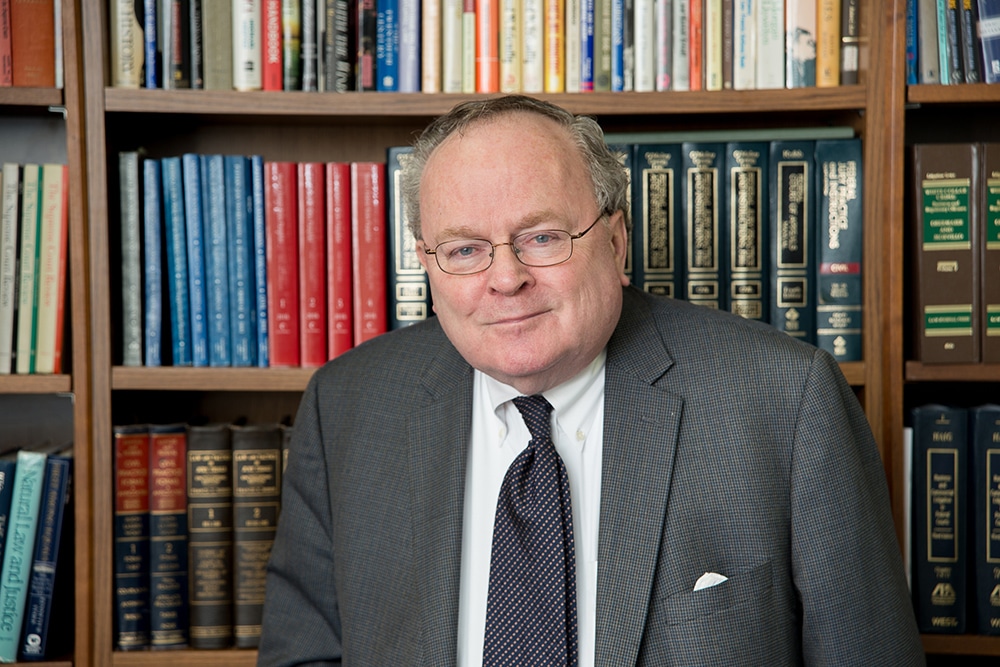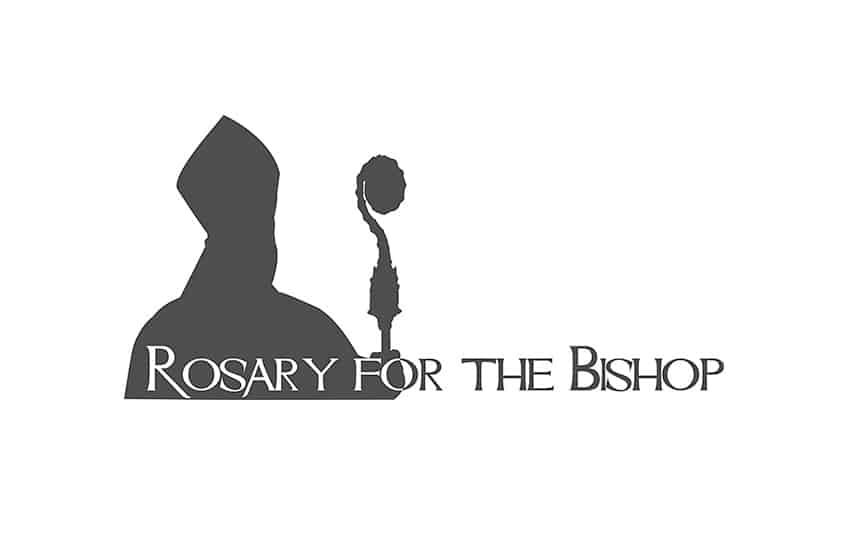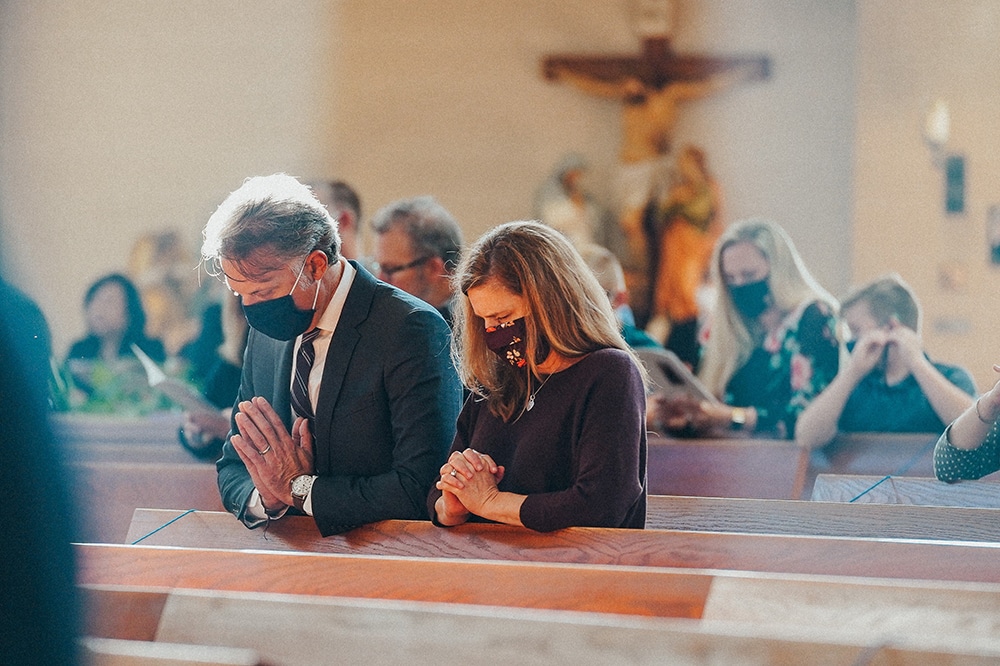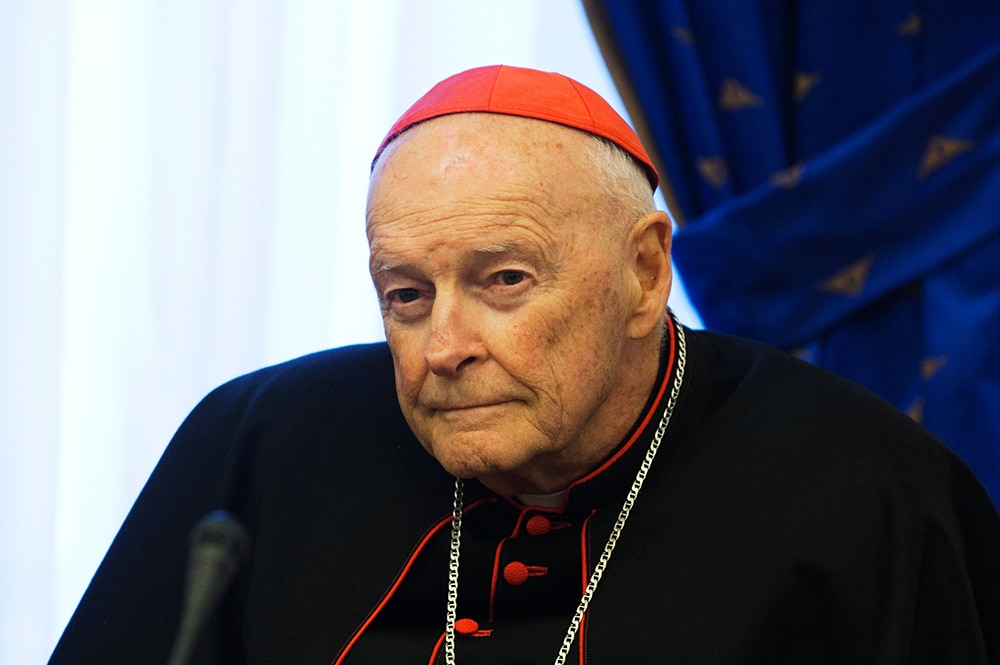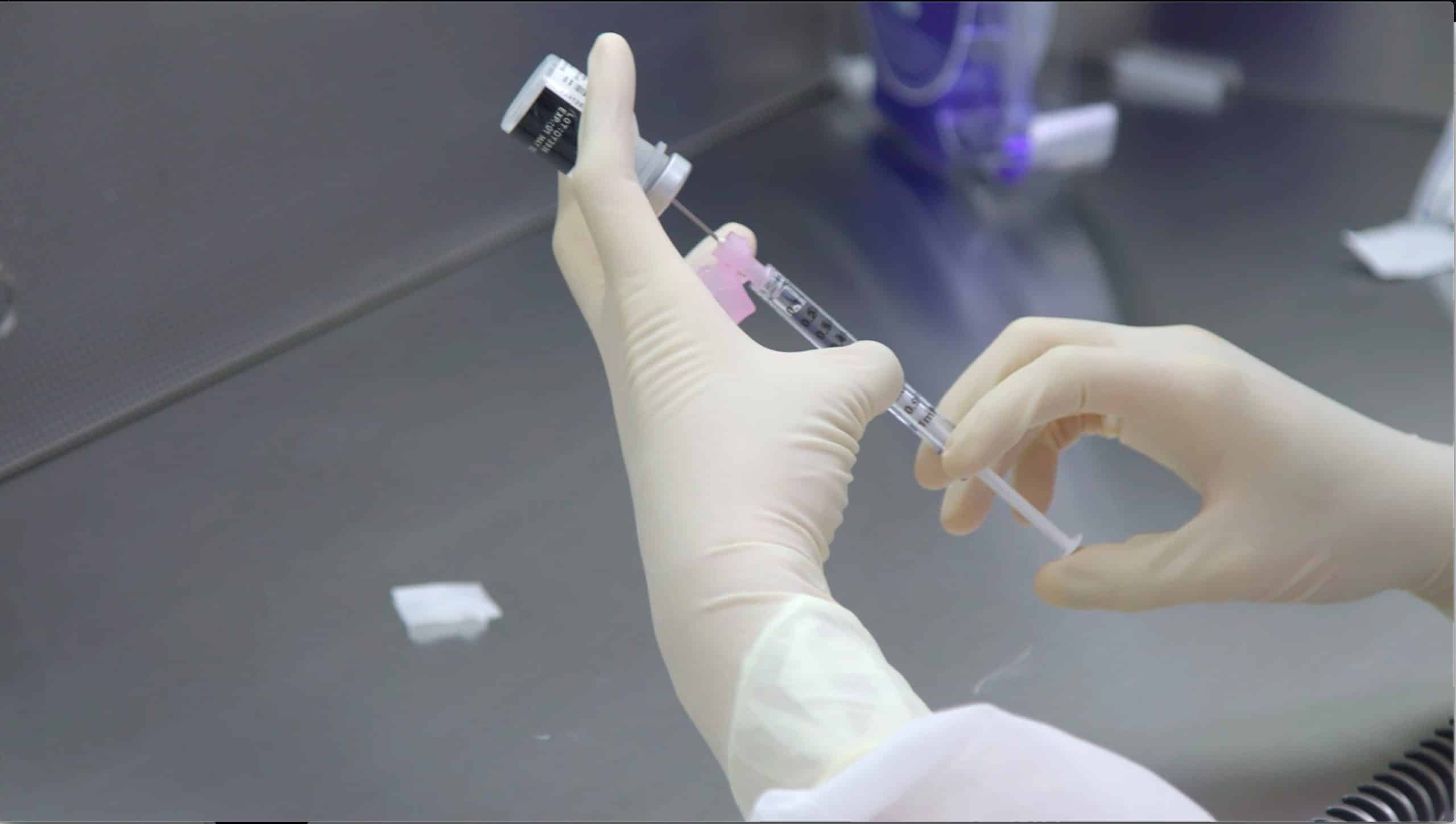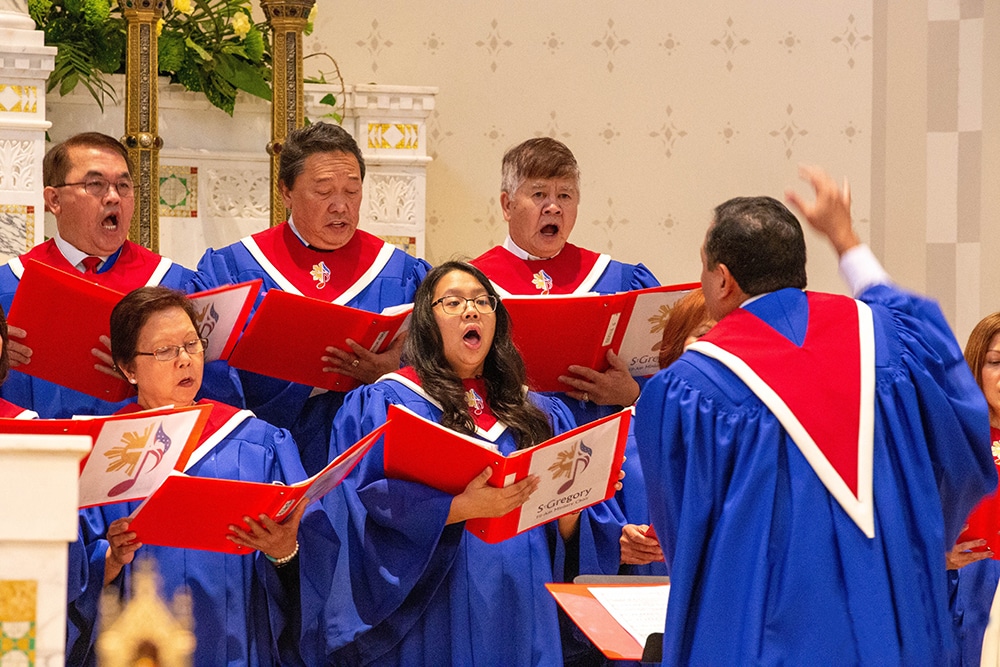The Thomas More Society, the Chicago-based nonprofit law firm well-known in Catholic circles for litigating religious liberty cases and defending the constitutional rights of pro-life activists, has launched a new “election integrity” initiative that overlaps with President Donald Trump’s efforts to overturn the election results in battleground states he lost this November.
The lawsuits that attorneys working for the Thomas More Society’s Amistad Project have filed in state and federal courts echo many of the president’s claims that widespread voter irregularities tilted the election in favor of his opponent, President-elect Joe Biden.
“We are excited to have the Amistad Project as a partner in the fight to ensure the integrity of our elections,” Rudy Giuliani, the former New York City mayor who is leading the Trump campaign’s legal efforts, said in a press release last month announcing that the group would be filing state and federal lawsuits challenging the presidential election results in Wisconsin, Pennsylvania, Michigan, Nevada, Georgia and Arizona — all states that have certified that Biden won.
Meanwhile, listed as a member of the Amistad Project’s leadership and advisory board is Jenna Ellis, a Trump campaign adviser who has said that the 2020 election was “stolen” and that the president won “in a landslide.” Ellis also works on church-related issues as a special counsel for the Thomas More Society.
Thomas Brejcha, the founder and president of the Thomas More Society, said he did not know Ellis and was unaware of her background when she first approached the law firm seeking legal help on behalf of a Protestant pastor fighting a religious liberty case in California.
“The idea that we are somehow connected with the Trump campaign is ludicrous. We are public interest lawyers, not campaign lawyers for anybody,” Brejcha told Our Sunday Visitor in a phone interview.
This summer, weeks before Election Day, the Thomas More Society began filing election-related litigation. Brejcha said the law firm amended its bylaws earlier this year to include election integrity among its stated corporate purposes.
“The election integrity issue is a matter of the public interest,” Brejcha said. “If you work on that front, your work may go to the benefit of one campaign or another, but that’s an incidental and unavoidable result of looking into matters of paramount public importance.”
In August, the Thomas More Society filed lawsuits in Michigan concerning changes made in 2020 to the state’s absentee ballot program. A news release on the nonprofit’s webpage said the lawsuits were “part of a program introducing litigation in several states to protect (civil) liberties from executive overreach by the use of state police powers.”
In the same release, Brejcha said voters deserved to be heard and have their rights protected on “such critical issues” as the protection of human life and the preservation of religious liberty.
“These issues are now sharply drawn, and the two factions fighting them are polarized as never before,” Brejcha said in the release. “With candidates coming down more clearly on either side of these key issues, our elections have become more important than ever in determining whether our fundamental freedoms will be preserved or weakened, perhaps fatally.”
It is not unusual for nonprofits across the political spectrum, such as the NAACP Legal Defense Fund or the ACLU Foundation, to be involved in election integrity. Brejcha framed the Thomas More Society’s foray into the issue as consistent with its mission to defend civil liberties.
“It’s hard to think of a public importance issue that is more critical than how democracy operates in the conduct of elections,” Brejcha told Our Sunday Visitor.
Erick G. Kaardal, a special counsel for the Thomas More Society, who joined the Amistad Project this year as its most experienced election law litigator, told Our Sunday Visitor that the initiative reflects “a sort of Christian populism.”
“The idea being that we need to work together to improve government,” said Kardaal, who added that nonprofits like the Thomas More Society have a role to play “in helping the government improve its performance.”
“I think there was a recognition that the government was underperforming in the election area,” Kardaal said. “The board [of the Thomas More Society] decided, ‘Let’s get the people together and make sure we improve government performance in the election area.'”
Phillip Kline, a former Kansas state attorney general and current law professor at Liberty University, directs the Thomas More Society’s Amistad Project. In 2013, the Kansas Supreme Court indefinitely suspended Kline’s law license after finding “clear and convincing” evidence of professional misconduct in how he investigated and prosecuted abortion clinics as the state attorney general, and how he handled grand jury proceedings as a county district attorney.
The Thomas More Society defended Kline, who Brejcha said was wrongfully disciplined for zealously investigating Planned Parenthood’s operations in Kansas. Brejcha said Kline deserved to have his law license reinstated.
“I think it was an outrage that was done to him,” said Brejcha, who told Our Sunday Visitor that Kline presented the idea of the Amistad Project to the Thomas More Society.
“He brought it to us. We adopted it,” Brejcha said. “It was a bonafide, warranted initiative.”
According to the lawsuit it filed in Michigan, the Amistad Project states, “This election will be remembered for the evisceration of state statutes designed to treat voters equally, thereby causing disparate treatment of voters and thus violating the constitutional rights of millions of Michiganders and Americans citizens.” The group also has claimed to have whistleblowers who witnessed the illegal tampering of tens of thousands of absentee ballots.
On Nov. 30, Kline went on Newsmax TV, a conservative network, and claimed the FBI is using voter fraud information obtained by the Amistad Project. In the same interview, Kline blamed Facebook CEO Mark Zuckerberg for using his wealth to place a well-financed thumb on the election scales.
In the Amistad Project’s lawsuits, news releases and online videos, Zuckerberg has been accused of manipulating the election system in swing states by directly donating more than $350 million to Democratic-controlled cities through a group called the Center for Tech and Civic Life.
“I think that has to be looked at,” Brejcha said. “I think there will be repercussions no matter the outcome of this election for years to come.”
“That had never been done before,” Kaardal added. “One of our concerns before the election was the historic amount of private money flowing into state and federal election officials and their departments. It’s the position of the Amistad Project that under the Constitution, elections should be government-funded, not privately funded.”
Kaardal, a Minnesota-based attorney who has worked on election lawsuits for more than a decade, argues that state election officials across the country over the past 20 years have increasingly been willing to accept higher error rates — about 1% — with absentee ballots.
“This is causing a crisis. When state election officials accept higher error rates — and these are close elections — then people are unwilling to accept the election results,” said Kaardal, who argued that a statistical analysis of social media posts, phone surveys and call center data indicates irregularities with absentee ballots.
“The litigation has been filed on behalf of the voters, based on these historically high error rates, and challenging these very narrow results,” Kaardal said.
However, state and federal judges, as well as election officials and governors in the states where the Amistad Project has filed litigation, said they have not seen convincing evidence of systemic voting irregularities that would have swung the election one way or the other.
Last Friday, the Wisconsin Supreme Court declined to hear a case filed by the Amistad Project. A conservative judge wrote that that the group’s lawsuit included “glaring flaws that render the petition woefully deficient.”
“This is a dangerous path we are being asked to tread,” wrote Justice Brian Hagedorn, who described the Amistad Project’s attempt to get the court to overturn the presidential election by having the Republican-controlled state legislature appoint Wisconsin’s 10 presidential electors as “the most dramatic invocation of judicial power” he had ever seen.
To date, more than 30 lawsuits challenging election results have been filed in swing states that Biden won. Most have been dismissed or withdrawn. No court has yet found the kind of widespread voter fraud or human error that would warrant the invalidation of a state’s final election results.
In an interview with the Associated Press, Attorney General William Barr said that the U.S. Justice Department has not “seen fraud on a scale that could have affected a different outcome in the election.”
What connections, if any, does the Amistad Project have with the Trump campaign and other politically active organizations?
Since Nov. 25, some of the contents on a website for the Amistad Project, got-freedom.org, has frequently been changed. A carousel with pictures of the Amistad Project’s Leadership and Advisory Board has recently been removed, but snapshots of the site in the Internet Archive show that Jenna Ellis and Catherine Engelbrecht were listed as members of the Leadership and Advisory Board.
Engelbrecht founded True the Vote, a group that grew out of a Tea Party organization. True the Vote supports strict voter ID laws and publishes stories on its website alleging voter fraud by liberals and Democrats.
The Internet Archive also confirms that, as late as Nov. 25, the website featured a list of partner organizations that included “Keep America America,” a political action fund set up to help reelect two Republican U.S. senators in Georgia in runoff election this coming January.
Another listed partner was “Flatten the Fear,” a website that calls for reopening the United States’ economy amid the novel coronavirus pandemic. The website highlighted quotes that blamed the press and Dr. Anthony Fauci, one of the country’s leading experts on infectious diseases, for overhyping the pandemic and generating public fear.
On its website, Flatten the Fear is described as a project of the Job Creators Network Foundation, a pro-business advocacy group founded by Bernie Marcus, the former CEO of Home Depot, who has lobbied for experimental treatments such as hydroxychloroquine for COVID-19.0
Asked about the contents of the Amistad Project’s website, Brejcha told Our Sunday Visitor that he did not know about those formerly listed “partner” organizations. Brejcha said Kline set up the website. Through late November the site encouraged readers to give tax-deductible donations to “the Amistad Project of the Thomas More Society,” a nonprofit, 501(c)(3) organization. The website no longer accepts donations for the Thomas More Society. On its “donate” page, the website indicates that it is a 501(c)(4) organization, which means that donations are not tax-deductible and the organization can engage in a wider range of political lobbying.
Kline “changed (the website) at some point. I’ve asked him for the details,” said Brejcha, who added that the Amistad Project still operates under the umbrella of the Thomas More Society’s nonprofit status.
Said Brejcha, “If (Kline) has gone off to do something else, we’re severing ties.”
Federal tax law experts told Our Sunday Visitor that the overlap between Trump’s political interests and the Amistad Project’s activities is enough to raise questions, but the facts as currently known would probably not be enough evidence for the Internal Revenue Service to strip the Thomas More Society of its federal tax exempt status.
“At the very least, it’s creeping up to the line and sticking a toe over it,” said Samuel D. Brunson, a professor at the Loyola University Chicago School of Law.
“The timing of (the Thomas More Society’s) adoption of (election integrity) as part of their purposes is somewhat suspect, but it’s not enough, I think, to place their tax exempt status at risk,” said Lloyd Mayer, a law professor at the University of Notre Dame.
“I think in this situation, it would take a smoking gun email that said, ‘We have to get Trump elected, and this is how we’re going to do it,'” Mayer told Our Sunday Visitor.
In its 2018 Form 990 federal tax filing, in which it reported more than $6 million in revenue, the Thomas More Society describes its primary exempt purpose as being a public interest law firm that seeks to protect fundamental civil and constitutional rights. The nonprofit said it also conducts public awareness campaigns of related developments affecting the public’s interest in pro-life and religious liberty matters.
As a 501(c)(3) nonprofit, the Thomas More Society cannot intervene directly or indirectly in any federal political campaign on behalf of or in opposition to any candidate for public office. Brunson said there is no federal judicial or regulatory guidance as to whether a nonprofit law firm violates its status by filing lawsuits on behalf of a political candidate.
“The lawsuits our lawyers have filed are legitimate efforts to pursue a just result given the election integrity issues that we’ve raised in these cases,” said Brejcha, who told Our Sunday Visitor that he doesn’t have “the slightest idea” who really won the 2020 presidential election.
Said Brejcha: “We don’t know. I think this $250 million to $300 million in money flooding into local officials’ offices was wrong, and it should be prevented in the future. What impact that would have on the vote counts, I don’t know.”
Meanwhile, all 50 states and the District of Columbia have certified their election results, giving Biden 306 electoral votes. He needed 270 to win the presidency. On Dec. 14, electors will meet in each state to formally cast their votes.
Kaardal, the Amistad Project’s election integrity attorney, said the litigation will continue long after the Electoral College finalizes the 2020 presidential election, which he conceded will likely be done before the courts can rule on the pending lawsuits.
“We’re not particularly concerned about this presidential election,” Kaardal said. “We’re concerned about the longer term.”
Brian Fraga is a contributing editor for Our Sunday Visitor.

